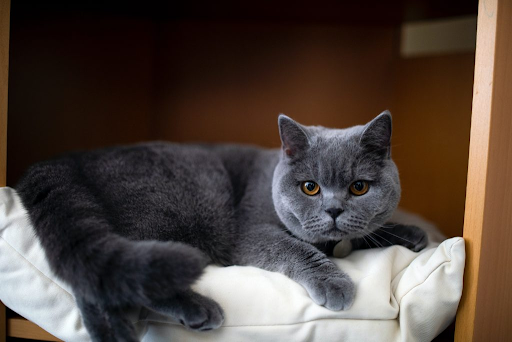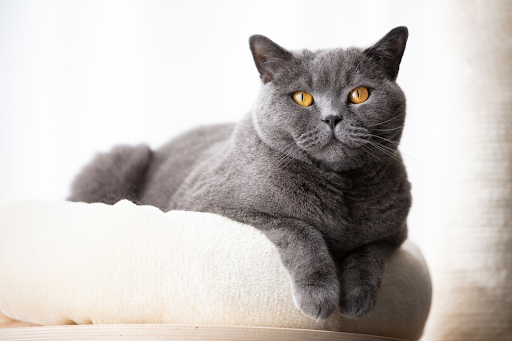To sign up for our daily email newsletter, CLICK HERE
Raising kittens is an exciting and rewarding experience. However, not all kittens are the same. Different breeds come with unique characteristics and care requirements that can make the experience a bit more specialized. Two popular breeds that many cat lovers adore are the siberian cat and the british shorthair kitten. Both breeds are known for their distinct personalities and stunning appearances, but their needs, from grooming to feeding and socialization, can vary greatly. This guide will provide a comprehensive overview of how to care for and raise siberian cats and british kittens, ensuring they grow up healthy, happy, and well-adjusted.
Whether you are already an owner or you are browsing for siberian cats for sale or considering adopting british kittens, understanding how to care for these kittens is essential for fostering a long-lasting, loving relationship.
Understanding the breeds: siberian cats and british shorthairs
- Siberian cats. They are known for their long, luxurious coats and large, muscular build. They are one of the oldest cat breeds, originating in the cold climates of Russia. Their dense fur protects them from the harsh weather, and they are naturally strong and agile. Siberians are often described as affectionate, playful, and dog-like in their loyalty to their owners. They are sociable and tend to get along well with children and other pets.
- British shorthairs. This kittens, on the other hand, are one of the most popular breeds in the world, particularly in the UK. They are recognizable by their round faces, stocky build, and plush, dense coats. British Shorthairs are calm, independent, and generally quieter than other cat breeds. They are ideal for families or individuals who prefer a more low-maintenance, easy-going cat that enjoys lounging around and showing affection on its own terms.

Feeding and nutrition: building a healthy foundation
Diet is one of the most important aspects of raising healthy kittens. Both siberian and british shorthair kittens require high-quality food to support their growth, but there are some nuances to their dietary needs.
1. Siberian kittens. These cats are generally larger than other cat breeds, and they grow more slowly, taking up to five years to reach full maturity. Therefore, they need a nutrient-dense diet that supports prolonged growth. Choose kitten food that is high in protein (since they are obligate carnivores) and has adequate fat and essential vitamins to support muscle development and coat health.
For siberians, both dry and wet food can be provided, though wet food is a good option to ensure hydration and avoid urinary tract issues. Portion control is important, as these kittens are active and may want to eat more than necessary.
2. British shorthair kittens. British Shorthairs also benefit from a protein-rich diet, though their stocky build means they are more prone to weight gain. It’s important to monitor their portions and avoid overfeeding. They can be somewhat lazy, even as kittens, so ensure they don’t consume too many calories that could lead to obesity.
Both breeds benefit from high-quality kitten food designed specifically for growing cats, and they should have access to fresh water at all times.
Grooming needs: keeping their coats healthy
Grooming is an essential part of caring for siberian and british kittens https://www.kittensup4sale.com/british, but their grooming requirements differ due to their distinct coats.
- Siberian cats. Siberian cats have a thick, triple-layered coat that is resistant to water and matting. While it is not as high-maintenance as one might expect from a long-haired breed, regular grooming is still necessary to keep their coat in top condition, especially during shedding seasons.
Brush your siberian kitten’s coat at least two to three times a week to prevent mats and tangles. During the shedding season, which happens twice a year (spring and fall), you may need to brush them more frequently. Regular grooming also helps remove dead fur and prevents hairballs.
- British Shorthairs. British shorthairs have dense, plush coats that don’t require as much grooming as their long-haired counterparts. A weekly brush is generally sufficient to keep their coats healthy and shiny. However, like siberians, british shorthairs will shed more during certain seasons, so you might want to increase brushing frequency during those times.
Even though they have a low-maintenance coat, british shorthairs still enjoy the bonding time that comes with regular brushing. It’s a great way to build a closer relationship with your kitten.

Exercise and play: keeping them active
Exercise is essential for kittens, not only for physical development but also for mental stimulation. Both siberian and british kittens need regular playtime, though their activity levels can differ.
- Siberian cats. These are highly energetic and agile. They love to climb, jump, and explore their surroundings. Providing a siberian kitten with plenty of space to run and play is important. Interactive toys, cat trees, and climbing shelves will keep them entertained and engaged. Since siberians are naturally athletic, it’s also a good idea to engage them in play sessions that involve chasing and jumping, such as using laser pointers or feather toys.
As they grow, their playful and curious nature will remain strong, so it’s important to keep providing stimulating activities to prevent boredom.
- British shorthair kittens. These kittens are generally more laid-back compared to siberians. While they do enjoy playing, especially when they are young, they are less likely to be as energetic. British shorthairs enjoy short bursts of playtime but are also content with lounging around.
Interactive toys and gentle play sessions will keep them entertained, but they may not need the same level of physical activity as siberians. However, it’s still important to ensure they stay active, particularly since they are prone to gaining weight as they mature.
Socialization and training: raising well-adjusted cats
Socialization and training are key aspects of raising well-behaved and friendly cats. Both siberian and british shorthair kittens are intelligent, but their temperaments and training approaches differ.
- Siberian cats. Siberian kittens are highly social and crave attention. They bond closely with their owners and enjoy being part of family activities. Early socialization is important to help them feel comfortable around new people, pets, and environments. Siberians are also trainable and can learn tricks, such as fetch, with positive reinforcement.
Their loyalty and intelligence make them relatively easy to train, but consistency and patience are important. Use treats and praise to reinforce good behavior, and always encourage positive interactions with new people and animals.
- British shorthair kittens. British shorthairs are more independent and may not seek as much attention as siberians, but they are still affectionate and enjoy the company of their owners. British kittens tend to be more reserved and may take longer to warm up to strangers, so early socialization is key.
Training british shorthairs may require more patience since they are less motivated by attention or treats. However, with consistent positive reinforcement, they can learn basic commands and develop good manners.
Health and veterinary care: preventive measures
Regular veterinary care is essential for keeping both siberian and british kittens healthy as they grow. Vaccinations, deworming, and flea control are all necessary to protect your kittens from common illnesses and parasites.
- Siberian cats. Siberians are generally a healthy breed, but they can be prone to hypertrophic cardiomyopathy (HCM), a form of heart disease. Regular check-ups with your vet will help monitor your kitten’s heart health as they grow.
- British shorthair kittens. British shorthairs are also a robust breed but can be prone to obesity if overfed. Regular weight checks and a balanced diet are crucial for keeping them at a healthy weight. Additionally, british shorthairs may be predisposed to certain genetic conditions like polycystic kidney disease (PKD), so it’s important to ensure your kitten comes from a reputable breeder who screens for these issues.
Conclusion
Caring for and raising siberian cats and british shorthair kittens involves understanding the specific needs of each breed. From their unique grooming requirements to feeding, exercise, and socialization, each breed has its own set of characteristics that shape how you care for them.
If you’re looking to bring home a kitten, consider browsing siberian cats or british kittens from reputable breeders. By preparing to meet their individual needs, you can ensure a smooth transition into your home and enjoy many years of companionship with your new feline friend.